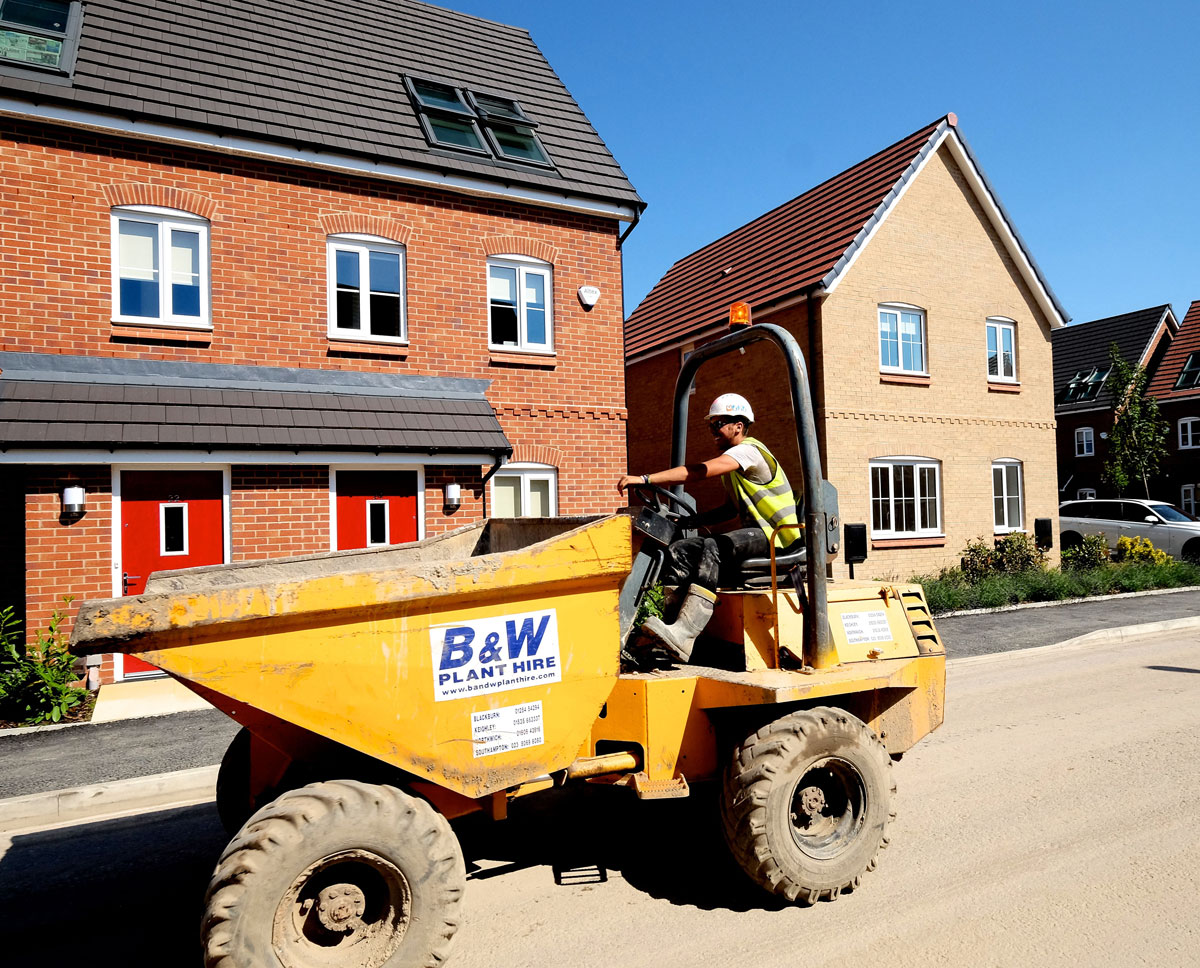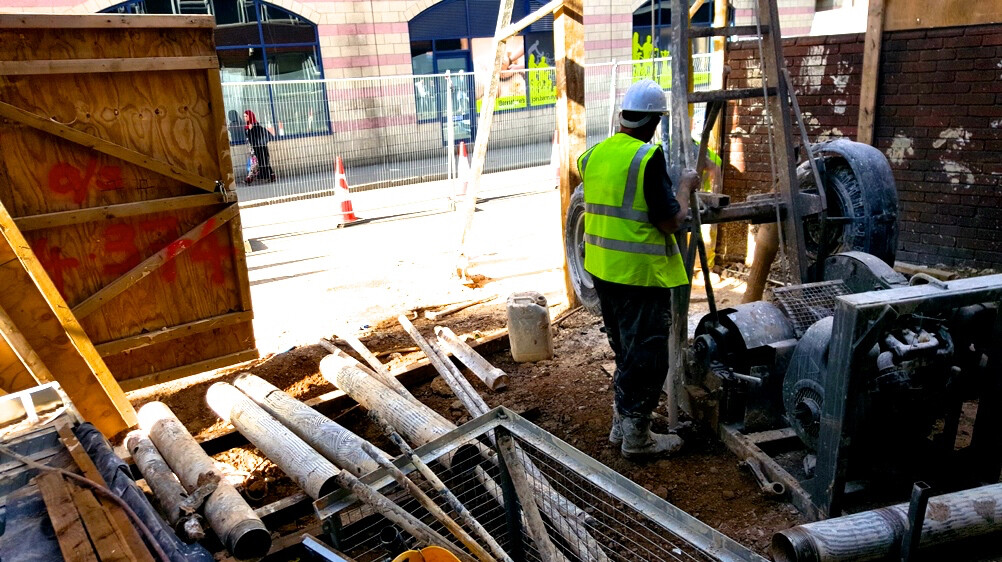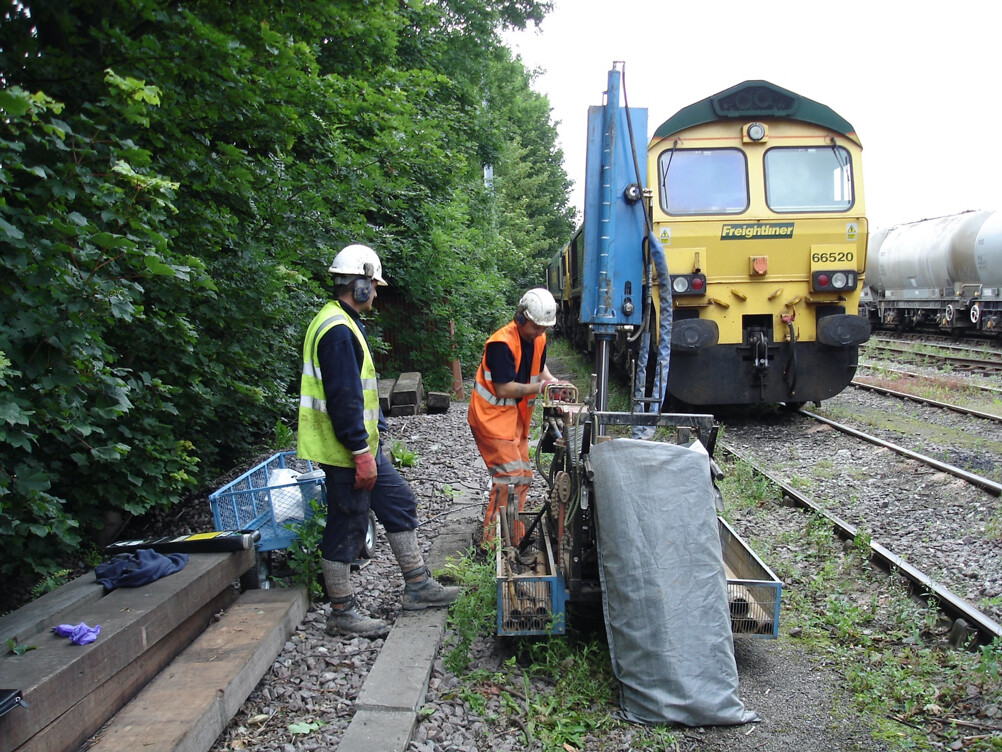Conducting Ground Investigation | Site Investigation
What Could Delay Your Development Construction?
More than 50% of construction projects are delayed by adverse site conditions or unexpected ground conditions. Conducting detailed Site Investigation / Ground Investigations can save you time and money.
There are many reason’s a development can be delayed, but one of the key factors that will affect a development is knowing what you are building on. In order to understand the impact of the proposed development, a clear understanding of the sites ground conditions is required.
Ground Investigation | Site Investigation – Understanding your Development Sites Ground Conditions –
Ground Investigation | Site Investigation
Step 1
The first step in this process is a Phase 1 Desk Study.
A phase 1 Desk Study, which is normally carried out at the beginning of the Site Investigation process, considers the risks posed to your development from geotechnical or environmental hazards combined with historical data on your specific site.
It’s not always obvious that land is contaminated, sometimes contaminants can be transported distances by groundwater. Or the land may be contaminated from historical industrial waste. There may be geotechnical issues which are not visually evident, this is why a Phase 1 Desk Study is required.
A Phase 1 Desk study collates and reviews all the information and may include a wide range of resources – At Earth Environmental & Geotechnical we provide an interpretive report that looks at the specific objectives of the client’s proposal and combines that information with the specifics of the proposed development site. Click here for more detail
The Phase 1 desk study helps to identify potential geotechnical, environmental, and ground engineering hazards at an early stage before construction begins, and ideally should be combined with a site walkover survey.
At Earth Environmental & Geotechnical a Site Walkover Survey is completed by one of our Engineers and conducted as part of each Phase 1 GeoEnvironmental Desk Study with site walkover survey (site that is less than 5 hectares in size)
It is a fundamental part of the Desk Study and essential to gain a comprehensive understanding of the site. During the walkover survey, we will assess areas identified within the desk study as potential development issues, environmental, and cost liabilities.
We also highlight potential remedial options or management considerations.
When the Phase 1 Desk Study and Site Walkover Survey is completed a Site Conceptual Site Model can be developed if required.
The Site Conceptual Site Model allows for environmental and geotechnical hazards to be individually assessed. Potential pollutant linkages can then be prioritised if Phase II Site Investigations are necessary.
The works culminated with the production of a detailed factual report containing:
- Details of all exploratory fieldworks undertaken;
- Detailed descriptions of soils and groundwater conditions encountered;
- Baseline chemical data for Soils and Groundwater;
- Calculation of shallow soil permeabilities
Different Terminology used for Phase 1 Desk Study
A desk study is referred to by many different technical names throughout the industry.
This can be confusing, but essentially the assessment/report is largely the same. You may be asked to provide :
- Desk Study
- Phase 1 Desktop Report
- Preliminary Risk Assessment
- Geoenvironmental Appraisal
- Contaminated Land Survey
- Land Contamination Assessment
- Contamination Risk Assessment
- Phase 1 Site Investigation
- Phase 1 Ground Investigation
If you are unsure what reports you need to submit to your Local Authority to support your planning application please Contact Us
Ground Investigation | Site Investigation – Step 2
The second step in understanding your development sites ground conditions are Site Investigations also referred to as Ground Investigations
Site Investigations or Ground investigation can save costs by enabling contractors to foresee an issue before it becomes a costly problem and have a strategy in place to deal with the impact of development on the site.
The term ‘ground conditions’ generally refers to the geology, hydrology, soil condition and any contamination of the ground on the site of a construction project. Ground conditions may be naturally occurring, man-made or, frequently a combination of the two.
Examples of artificial or man-made conditions or obstructions include landfill, asbestos, old sewers, mine shafts. The likely effects of the proposed development on topography, ground stability, soil compaction and soil erosion, re-use of soils, waste soils, and contamination of the site should always be considered.
The success and profitability of most development sites is established before the site has even been purchased during the due diligence stage. At this stage all the risks, opportunities and options must be considered and it is critical for all developers to complete this stage of the process. Earth Environmental & Geotechnical are experienced in providing advice and reports for the Due Diligence process.
An impact assessment of the potential physical effects of the proposed development on geology should be undertaken using a qualitative approach considering the effects on: topography, soil compaction, soil erosion and ground stability from the construction works.
So subsurface ground Investigations are required to get a full understanding of what you are building on. Using the results of the Phase 1 Desk Study and the Preliminary Development Proposal, details of what ground investigations are required for the site can be specified.
What is a Site Investigation?
The Site Investigation or Ground Investigation is an essential step in understanding your development site and ground conditions. It is an intrusive investigation to assess ground conditions
- The nature and sequence of strata
- Are the different strata fairly homogeneous over the site or do local variations exist
- The ground water conditions at the site, Will any part of the site be subject to flooding?
- The physical properties of soil and rock underlying the site with testing of the soil both in the laboratory and in-situ.
- The mechanical properties such as strength of different soil or rock strata
Earth Environmental & Geotechnical offer a comprehensive and versatile range of Ground Investigation / Site Investigation techniques, from simple trial pitting to more sophisticated drilling and in-situ testing methods. To find out more information on Site Investigation
Our Site Investigation/ Ground Investigation Services Include
- Trial pitting and trenching
- Cable percussive boreholes
- Rotary Core Drilling
- Rotary Open Hole Boreholes
- Window Sampling and dynamic probe testing
- Concrete Coring
- Environmental Sampling
- Ground Gas Monitoring
- Radon Monitoring
The links above show examples of case studies.
What is the Purpose of Site Investigation or Ground Investigation?
The Purpose of Site Investigations or Ground Investigations is to understand the Ground Conditions for your Development Site before construction work begins to determine the risks and most importantly to develop remediation designs to minimise the impact of your development.
The Site Investigations / Ground Investigations allow a comprehensive risk assessment of the ground conditions to be made from which an Interpretive Report can be developed.
Step 3
Remediation Designs
The Geotechnical Interpretative Report is a vital link between the factual laboratory and site investigation data and geotechnical engineering designs required.
Where a site is found to be affected by contaminants, a combined geotechnical and geo-environmental investigation will be required. Once all the data has been collated and the risks assessed the results can be used to inform construction designs and a remediation strategy developed.
At Earth Environmental & Geotechnical we have experience, at board level, in the use of a wide variety of remediation techniques to deal with soil and groundwater issues, together with abnormal ground conditions.
In recent years the following remedial techniques have been designed and implemented by our staff:
- Permeable Reactive Barriers
- Soil Screening & Crushing
- Monitored Natural Attenuation
- Japanese Knotweed Treatment
- Free Product Removal
- In-Situ Chemical Oxidation
- Pump and Treat
- Treatment at Hub Site
- Physical Sorting to remove asbestos fragments
- Air Sparging
- Dual Phase Vapour Extraction
- Ex-situ biopiling
- Cement/lime stabilisation
- Removal offsite to landfill/exempt facility
- Ground Gas Barriers
- Soil Inversion
- Cover System Installation
At Earth Environmental & Geotechnical our unrivaled experience allows us to develop pragmatic solutions for sites that require an understanding of the ground conditions, the risks posed, relative cost, and technical merits of a wide range of novel and civil engineering based techniques.
So if you are planning a new development and want to minimise your risk of construction delays, having a clear understanding of ground conditions is essential. At Earth Environmental & Geotechnical we have the knowledge and expertise to advise you through every step of this process. All our Ground Investigations are carried out in accordance with the UK Specification for Ground Investigation, Second Edition, British Standard Code of Practice BS5930 and British and European Standard BS EN 1997-2 (EC7).
Conducting detailed Ground Investigation | Site Investigation before construction can save you time and money. And keep your construction project on track.
Contact Earth Environmental & Geotechnical now to discuss your development site.






